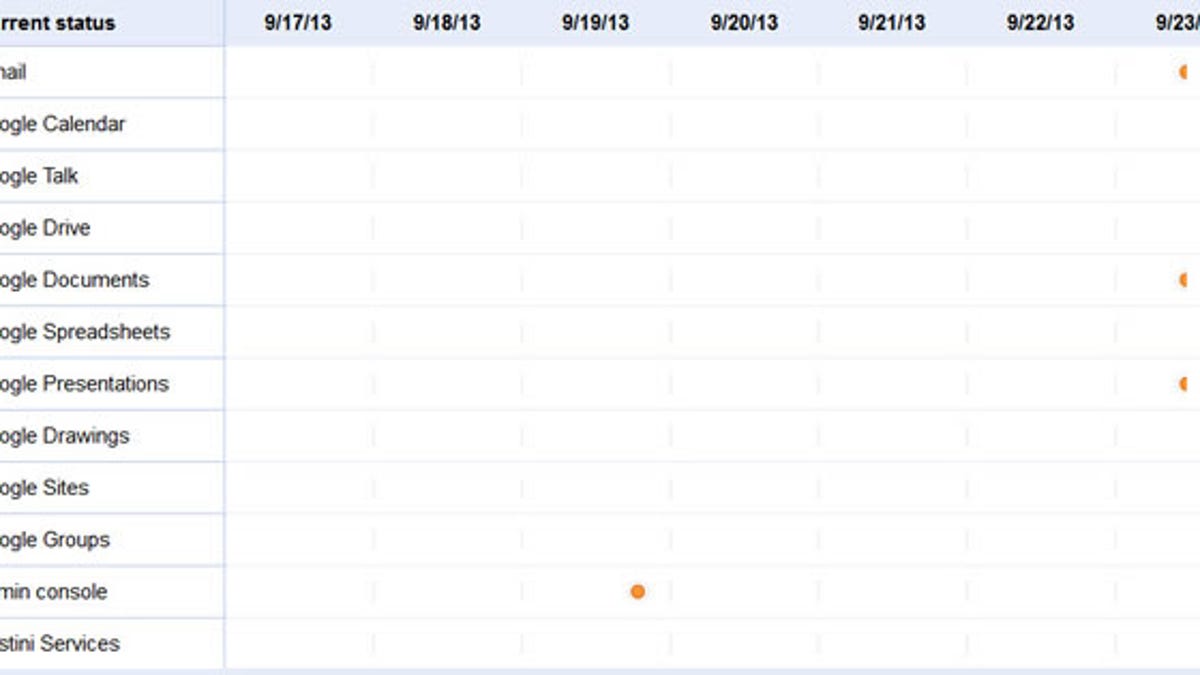Google: We're sorry for latest Gmail outage
The search giant apologizes for Monday's Gmail interruption and promises steps to ward off the same glitch in the future.

Google is trying to reassure affected Gmail users that the latest service disruption won't happen again.
On Monday, many Gmail users discovered that their messages were coming in slowly and that some of their file attachments were missing. Google's App Status Dashboard detailed the chain of events from the discovery of the problem to its eventual resolution.
In a Google blog posted Tuesday, Sabrina Farmer, senior site reliability engineering manager for Gmail, apologized for the issue and blamed in on a dual network failure. Calling such a failure a "very rare event," Farmer said that the two network problems were unrelated, but together they stalled the delivery of messages to users.
The effect on Gmail users varied, according to Farmer. Around 71 percent of messages experienced no delay. Among the other 29 percent, the average delay was 2.6 seconds. But among the delayed messages, 1.5 percent were stalled by more than two hours. Further, some users who tried to download large file attachments ran into errors. But Gmail itself was available for people to log in, read mail, and send messages.
Still, the problem has prompted Google to take steps to prevent it from recurring. And just what are those steps?
"We're taking steps to ensure that there is sufficient network capacity, including backup capacity for Gmail, even in the event of a rare dual network failure," Farmer said. "We also plan to make changes to make Gmail message delivery more resilient to a network capacity shortfall in the unlikely event that one occurs in the future. Finally, we're updating our internal practices so that we can more quickly and effectively respond to network issues."
Farmer promised that these improvements and more will surface over the next few weeks.

